Partial Hospitalization Program (PHP) for Addiction Treatment in California
One path that many individuals explore is a Partial Hospitalization Program addiction treatment in California. There are several advantages to this program format, including its ability to provide sustainable help to people who still live at home. For many people, this ideal “middle ground” program is an ideal solution for treating addiction without completely disrupting their life.
PHP addiction treatment is designed to help individuals who require a higher level of care but do not need the full-time monitoring of inpatient programs. For many individuals, a PHP is an essential step that provides medical support, structured therapy, and a robust support system. This level of care is especially beneficial for those stepping down from inpatient treatment or prefer a less restrictive environment.
Who Can Benefit from a PHP?
For those who have recently completed detoxification and are beginning their recovery journey, a PHP can provide essential support in managing the physical and emotional aspects of withdrawal and early recovery. A PHP allows individuals to continue detoxing while receiving crucial medical care and emotional support to overcome their challenges.
Recovery often thrives in structured environments. A PHP offers a high level of structure, providing regular therapy sessions, group discussions, and scheduled activities. For those needing routine, this structure helps prevent relapse and keeps individuals focused on their treatment goals.
A PHP can be particularly effective for those who have more severe or chronic addictions. While inpatient care suits those needing 24/7 supervision, a PHP can provide a similar intensity with the flexibility to return home. This flexibility can help individuals maintain some independence while still receiving the critical care they need.
Some individuals find that inpatient programs do not meet their needs or preferences. Whether due to the nature of residential care or a desire to maintain their daily responsibilities, PHP offers an alternative that still includes the necessary support and structure for long-term recovery.
For individuals managing both addiction and a co-occurring mental health disorder (known as dual diagnosis), a PHP can be beneficial. The program’s structure can address both addiction and mental health conditions (including depression and anxiety disorders) in a structured format. This approach ensures that these aspects of a person’s well-being are treated simultaneously, promoting lasting sobriety after finishing the program.
A PHP can act as a transitional phase for those who have already completed inpatient treatment. It allows individuals to step down from the intensive 24-hour supervision of inpatient care while still receiving treatment and support. This gradual transition can help prevent a relapse by providing the necessary tools and coping mechanisms before returning to full independence.

Therapy Options for PHPs
Individual therapy offers personalized, one-on-one sessions that allow individuals to explore deeper issues driving their addiction. This therapy provides a safe and confidential space for participants to process emotions, identify patterns of behavior, and work through past trauma. By building trust with a therapist, individuals can create strategies for long-term recovery that are unique to their needs.
CBT is a therapeutic approach designed for changing the negative thought patterns that contribute to addictive behaviors. It helps individuals recognize and challenge harmful ways of thinking, replacing them with healthier perspectives. Through CBT, participants can learn coping skills, develop problem-solving techniques, and gain practical tools to manage triggers and avoid relapse, making it a cornerstone of addiction treatment.
DBT focuses on teaching emotional regulation, mindfulness, and improving interpersonal effectiveness. This therapy modality helps individuals with intense emotions or relationship difficulties, common challenges faced by those struggling with addiction. By learning how to manage distress and build healthier relationships, individuals in a PHP can gain valuable skills to support their recovery.
EMDR is a trauma-focused therapy modality that uses eye movements to help individuals process and reduce the emotional charge of memories. Many individuals with addiction have experienced trauma, and EMDR can help them heal from past experiences that influence their behavior. By processing these memories, individuals can move forward and improve their ability to cope with life’s challenges.
Group therapy creates a supportive and collaborative environment where individuals who all struggle with addiction can share their experiences, learn from one another, and offer mutual support. It reduces feelings of isolation and helps individuals recognize that they are not alone in their struggles. Group therapy encourages empathy, accountability, and exchanging ideas, which can be incredibly valuable in recovery.
Addiction affects not just the individual, but also their loved ones. Family therapy helps rebuild relationships by improving communication, addressing unresolved issues, and educating family members about addiction and recovery. This therapy equips families with tools to support their loved one’s recovery, restoring trust and strengthening the family dynamic.
Each of these therapies address addiction and mental health complexities, equipping individuals with skills and support for successful recovery in a PHP.
What to Expect in PHP Treatment
The day begins with a check-in session, during which participants discuss progress, challenges, and intentions. This also allows for connection with the treatment team and peers, setting a supportive tone for the day.
Morning therapy includes individual sessions to address personal issues. It may feature group therapy focused on cognitive behavioral therapy (CBT) or dialectical behavior therapy (DBT). These help participants to build coping mechanisms, emotional regulation skills, and healthy ways to manage stress and triggers.
After therapy, participants may engage in group discussions to share experiences and provide mutual support. Educational workshops may cover topics like addiction education, relapse prevention, and mental health, offering tools and education for lasting recovery.
The afternoon may include additional therapy sessions, such as family or trauma-focused therapy. Participants also engage in therapeutic activities like art therapy, mindfulness, or yoga to support emotional healing and mental well-being.
Participants engage in self-care activities like journaling, meditation, or light exercise, promoting relaxation and overall wellness.
The day ends with a check-out session to reflect on progress, discuss challenges, and set goals for the next day. Participants then return home to practice coping skills in real-world environments.


